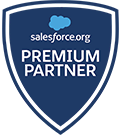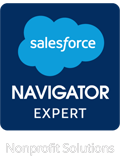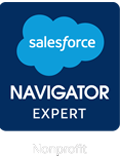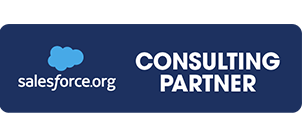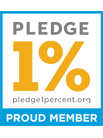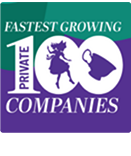Proactive Work vs. Reactive Work: An Engagement Philosophy for Managed Services
Managing a technology platform like Salesforce is much like maintaining a house. Picture this: your system is your house, and you, the homeowner, are tasked with its upkeep. There are times when you find yourself in reactive mode, addressing issues and fixing things just to maintain your system’s current functionality. This is comparable to repairing a leaky roof or a malfunctioning appliance in your home.
Alternatively, there are those exciting moments when you want to expand or enhance your house, perhaps because you're expecting a new addition to the family (launching a new program) or you've decided to remodel your kitchen (optimizing a specific aspect of your system). No matter which phase you’re in, it’s important to be clear about your vision and goals. This clarity allows us to provide you with the most relevant and effective recommendations.
At Idealist Consulting, we offer three comprehensive Managed Services packages to cater to your organization's specific requirements: Idealist Scout, Idealist Guide, and Idealist Assist. Each package is designed to ensure seamless operation and continuous improvement of your digital system.
Within these packages, there are several engagement philosophies that can guide our work together. The three most prominent are Proactive, Reactive, and Coaching engagements. Each philosophy has strengths and weaknesses and can be executed partially, in entirety, or used in combination. Below we’ll explore the differences between these philosophies. As you work with your consultant and Client Success Manager, we encourage you to embrace this nomenclature in order to clearly articulate your needs.
Proactive Work
Proactive engagements can be compared to building an addition or completing a remodel to support changing needs in your home. A proactive posture focuses on strategic planning in order to address opportunities and problems before they occur. The focus is on identifying and implementing long-term solutions rather than short-term fixes.
Strengths:
- Prevention: Focuses on preventing issues and problems before they occur, which can save time, resources, and stress down the road.
- Strategic Planning: Allows for long-term planning and goal setting, fostering better decision-making and adaptability.
- Efficiency: Often leads to increased efficiency as interruptions and crises are avoided.
- Innovation: Encourages innovation and continuous improvement by identifying opportunities for growth and development.
- Less Stress: Can reduce stress and anxiety as challenges are anticipated and mitigated before they occur.
Weaknesses:
- Resource Intensive: May require a significant upfront investment of time, resources, and planning.
- Lack of Immediate Results: May not yield immediate results, and the benefits might be seen only in the long term.
- Complacency: Overemphasis on proactive work can lead to complacency if not balanced with the ability to respond to unexpected events.
Reactive Work
A Reactive approach is similar to keeping up with routine home repairs and focuses on quick responses to unexpected situations, providing short-term solutions. This also includes ongoing and planned work that is specifically assigned to an Idealist Consulting consultant to expand your internal capacity.
Strengths:
- Immediate Response: Allows for quick responses to unexpected situations and crises.
- Resource Allocation: Enables efficient resource allocation since resources are directed where they are needed most.
- Flexibility: Can adapt to changing circumstances and emergencies effectively.
- Problem Solving: Involves problem-solving skills that can be valuable in addressing unforeseen challenges.
- Agile: Deals with urgent matters promptly.
Weaknesses:
- Limited Planning: Often lacks the benefits of strategic planning, which can lead to short-term solutions.
- Stress and Burnout: Continual reactivity can lead to higher stress levels and burnout among individuals and teams.
- Resource Drain: Can be resource-draining as time is often spent putting out fires and dealing with the consequences of unaddressed issues.
- Missed Opportunities: Over-reliance on reactive approaches can result in missed opportunities for improvement and growth.
- Short-Term Focus: Reactive work tends to be more short-term focused, potentially neglecting long-term goals and objectives.
Coaching Partnership
A Coaching engagement approach is comparable to learning a trade, empowering your organization to learn actionable skills throughout our Managed Services agreement. A coaching posture focuses on building internal capacity by providing your team with training and professional development, allowing you to better own your system.
Strengths:
- Building Internal Capacity: By looking to Idealist Consulting consultants as mentors, we are providing training and continued professional development for your internal teams, increasing and deepening your internal capacity.
- System Ownership: By empowering your team to work through both reactive and proactive tasks, they are deepening their understanding of the system and taking ownership of the vision.
- Cost Savings: With additional internal capacity and ownership, the work that you do with consultants like us will be strategic and targeted.
Weaknesses:
- Resource Intensive: May require a significant upfront investment of time, resources, and planning.
- Lack of Immediate Results: Mentorship and training takes time and may not yield immediate results. The benefits might be seen only in the long-term.
The effectiveness of each of these philosophies depends on the specific situation, context, and driving priorities for organizations during particular stages. In many cases, a balanced approach that combines proactive planning, mentorship, and the ability to react to disruptions is ideal for achieving both long-term success and the ability to address immediate needs. Please click the button below to reach out to our team directly if you would like guidance on which engagement philosophy is best for your organization.










